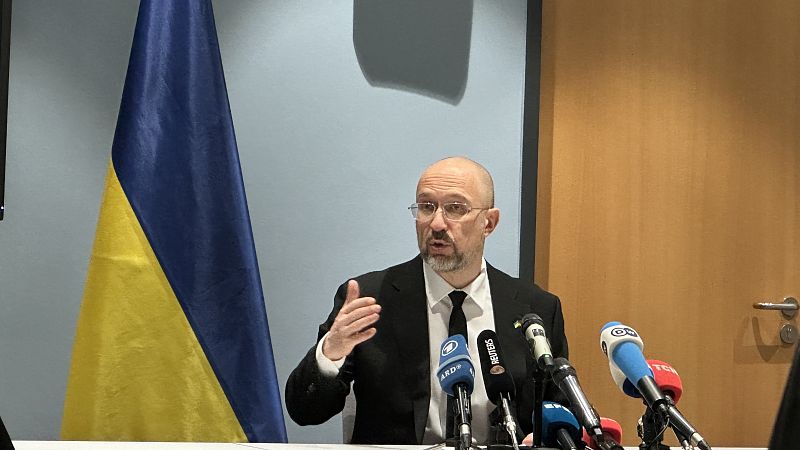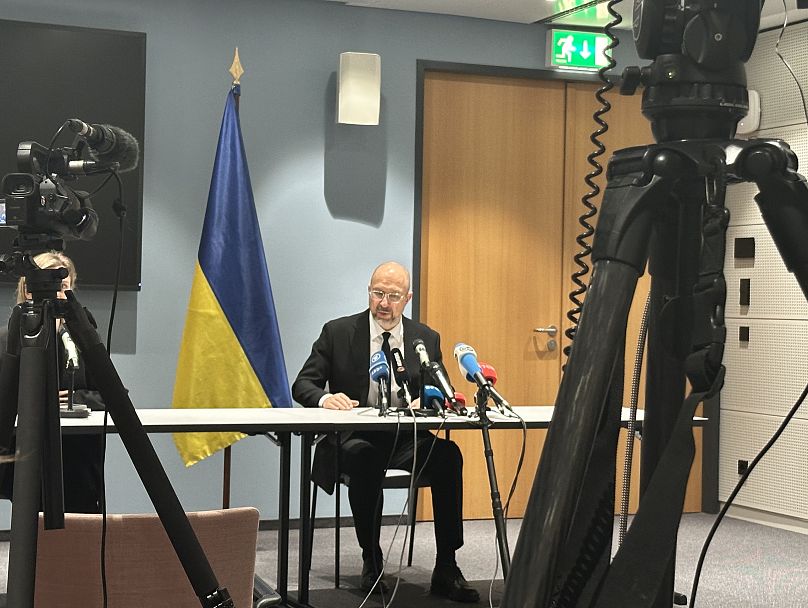Ukraine PM asks Germany to help pave the way for Ukrainian refugees' eventual return home

"We are interested in bringing all Ukrainians back", said Ukrainian Prime Minister Denys Shmyhal at a press conference attended by Euronews and a handful of other media, which took place on the sidelines of the German-Ukrainian Economic Forum.
Shmyhal also emphasised that security remains a key factor for these refugees. "They’re waiting for the war to finish," he explained, urging Germany to help create safe conditions to go back when that happens.
The creation of mutual joint infrastructure between German authorities and the new Ukrainian Ministry of National Unity in Berlin are a priority for both countries, said the prime minister. He also confirmed discussions are taking place between the Ukrainian delegation - featuring newly appointed Vice Prime Minister and Minister of National Unity Oleksiy Chernyshov, among others - and the German delegation, which includes Chancellor Olaf Scholz.
Following his surprise visit to Kyiv last week, Chancellor Olaf Scholz addressed the German Bundestag, sharing he had spoken "at great length" with Ukrainian President Volodymyr Zelenskyy about the situation of Ukrainian refugees in Germany and the creation of a German-Ukrainian agency.
Scholz emphasised the need for Germany to ensure that as many Ukrainian refugees as possible enter the workforce after completing language training and other preparatory measures. He acknowledged that while the government’s job programme, titled "job-turbo", had yielded some successes, it was not sufficient to meet current challenges.
Shmyhal confirmed that the agency's primary mission is "to unite Ukrainians worldwide". "We need to coordinate efforts for all of them," he stated. "But many of them are already coming back to Ukraine now. We should create these conditions together - Ukrainian and German authorities, as well as authorities in Poland and Czechia - to bring back as many Ukrainians as possible under good security conditions."
When it came to ending the war, Shmyhal said that freezing the front lines would lead "to the next more dramatic aggression from the Russian side," which would be neither in the interest of Ukraine nor the European Union, he explained.
On the subject of bringing back Ukrainian refugees, Shmyhal did not specify what the desired conditions of that process would entail. Additionally, it is unclear whether the aforementioned agency could play a role in Ukraine's mobilisation effort.
In April this year, the Ukrainian government called on Ukrainian men who have fled the country to register with the Ukrainian military, while implementing stricter measures such as refusing to issue new passports abroad to compel men to return and potentially join the armed forces.
According to the Federal Statistical Office, more than 1.2 million Ukrainians, including 200,000 men of military age, have been living in Germany since February 2022.


